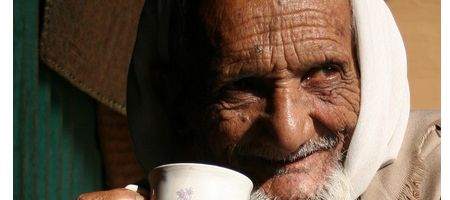Ha ha ha. Ha ha ha. Ha ha ha ha ha.I’m gonna light a cigarette, pour myself a beer and feel smug.

The latest research shows that diet, exercise, smoking and drinking have no bearing at all – none – on whether we’ll live to be very old.
Researchers at New York’s Yeshiva University studied a group of 95-and-over Ashkenazi Jews – a particularly uniform bunch genetically. They quizzed them about their lifestyles at age 70, which they reckoned would be pretty representative of the way they’d lived for most of their adult lives.
The 477 participants had their body mass index checked, and spilled the beans about their alcohol consumption, smoking, physical activity, and whether they ate a low-calorie, low-fat or low-salt diet.
The team then compared the answers with the general population.
And you know what? All those poor saps out there going to the gym, eating blueberries and fainting at a whiff of cigarette smoke are totally wasting their time. None of it makes any difference at all.
For the long-lived women in the trial, for example, 27 percent attempted to eat a low-calorie diet – exactly the same as the general population. Booze actually seems to do men good, with 24 percent of the long-lived men consuming alcohol daily, compared with 22 percent of the general population.
And exercise looks frankly bloody dangerous, with only 43 percent of male centenarians risking it, compared with 57 percent of men in the comparison group.
Basically, it seems, long life is all down to the genes.
“In previous studies of our centenarians, we’ve identified gene variants that exert particular physiology effects, such as causing significantly elevated levels of HDL or ‘good’ cholesterol,” says Dr Nir Barzilai.
“This study suggests that centenarians may possess additional longevity genes that help to buffer them against the harmful effects of an unhealthy lifestyle.”
In fact, the only thing that really does seem to make a difference is turning into a real lard-bucket. Being moderately overweight is fine, but only 4.5 percent of male centenarians were obese, as against 12.1 percent of controls. For women, 9.6 percent of centenarians were obese versus 16.2 percent of controls.
If I’d been the author of this study I’d have been breaking out the whiskey and cigars at this point, but these guys seem a bit suspicious of their findings.
“Although this study demonstrates that centenarians can be obese, smoke and avoid exercise, those lifestyle habits are not good choices for most of us who do not have a family history of longevity,” says a stern Dr Barzilai.
But they did ask the wrinklies why they thought they’d clung onto the perch for so long – and “most did not attribute their advanced age to lifestyle factors,” they report. A third said long life ran in the family; eight percent said it was just good luck.






